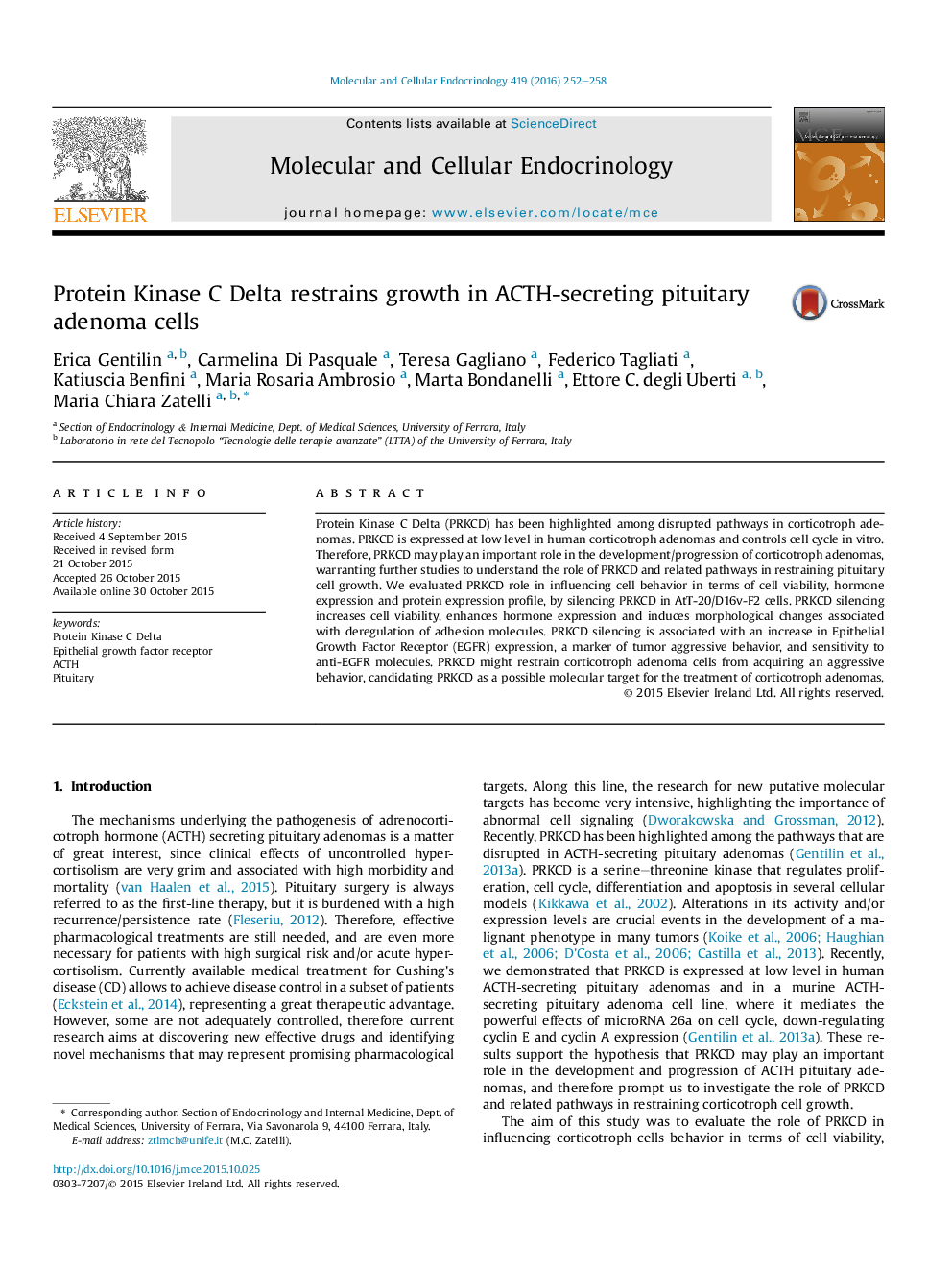| Article ID | Journal | Published Year | Pages | File Type |
|---|---|---|---|---|
| 2195732 | Molecular and Cellular Endocrinology | 2016 | 7 Pages |
•PRKCD influences the mechanisms regulating pituitary adenoma cell viability.•PRKCD is involved in POMC/ACTH, E-cadherin, β-catenin, GSK3β and EGFR expression regulation.•human corticotroph adenoma samples displaying lower PRKCD levels have higher EGFR protein levels.•PRKCD directly influences EGFR-mediated proliferative effects in corticotroph adenoma cells.•PRKCD might restrain corticotroph adenoma cells from acquiring an aggressive behavior.
Protein Kinase C Delta (PRKCD) has been highlighted among disrupted pathways in corticotroph adenomas. PRKCD is expressed at low level in human corticotroph adenomas and controls cell cycle in vitro. Therefore, PRKCD may play an important role in the development/progression of corticotroph adenomas, warranting further studies to understand the role of PRKCD and related pathways in restraining pituitary cell growth. We evaluated PRKCD role in influencing cell behavior in terms of cell viability, hormone expression and protein expression profile, by silencing PRKCD in AtT-20/D16v-F2 cells. PRKCD silencing increases cell viability, enhances hormone expression and induces morphological changes associated with deregulation of adhesion molecules. PRKCD silencing is associated with an increase in Epithelial Growth Factor Receptor (EGFR) expression, a marker of tumor aggressive behavior, and sensitivity to anti-EGFR molecules. PRKCD might restrain corticotroph adenoma cells from acquiring an aggressive behavior, candidating PRKCD as a possible molecular target for the treatment of corticotroph adenomas.
Graphical abstractFigure optionsDownload full-size imageDownload high-quality image (126 K)Download as PowerPoint slide
